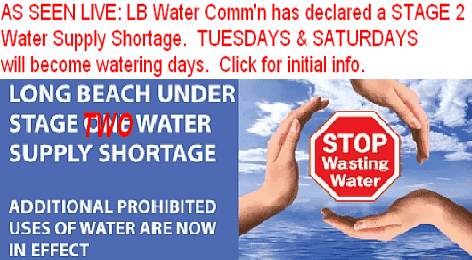In recent months, both sides have hurled charges and counter-charges at each other. The employers have alleged ILWU is engaging in a slow-down; ILWU denies this and blames port congestion on other factors. Employers acknowledge congestion results from reasons beyond labor issues, which has sent Port officials scrambling to try and address those issues.
As the negotiations persist, the employers and business groups say congestion and (they allege) slowdowns are being increasingly felt along the supply chain affecting retailers, their employees, and ultimately consumers when imported goods on which American consumers have come to rely are delayed, in short supply or possibly not on store shelves.
The President's major tool for direct intervention is the 1948 "Taft-Hartley" Act, a federal law detested by organized labor, which empowers the federal government's Executive Branch (via a Presidential declaration) to obtain injunctions blocking current or impending strikes or labor actions if they create a national emergency (verbiage broadly construed by courts.) In 2001, President George W. Bush used the Taft-Hartley provision to break a logjam when employers locked-out ILWU workers during negotiations.
To view PMA's Dec. 22 release text calling for federal mediation, see below:.
[PMA Dec. 22 release text] -- The Pacific Maritime Association (PMA), which represents employers at America's 29 West Coast ports, today asked for federal mediation in its contract negotiations with the International Longshore & Warehouse Union (ILWU).
While a number of observers -- including policy-makers, retailers and port directors -- have previously called for mediation, PMA had hoped the parties could reach resolution without outside aid. After the latest back-and-forth between the parties failed to resolve their differences, however, PMA has now agreed that outside intervention is necessary to bring the talks to conclusion, particularly given the ongoing impact of ILWU work slowdowns, which have disrupted cargo movement at the major West Coast ports of Tacoma, Seattle, Oakland, Los Angeles and Long Beach.
"After seven months of negotiations, we remain far apart on many issues," said PMA spokesman Wade Gates. "At the same time, the union continues its slowdowns, walk-offs and other actions that are having impacts on shippers, truck drivers and other local workers -- with no end in sight. It is clear that the parties need outside assistance to bridge the substantial gap between us."
The union's continued actions are creating long-term -- even permanent -- damage to the West Coast, hastening the continued loss in market share to ports on the U.S. East and Gulf coasts. According to a recent industry survey conducted by the Journal of Commerce, 60 percent of shippers have already rerouted cargos for 2015 away from the U.S. West Coast to avoid the problems, with many shippers saying their diversions will be permanent.
ILWU slowdown tactics have reduced productivity at Pacific Northwest ports for more than a month and a half, with drop-offs of 30-40 percent now the norm, according to PMA analyses of terminal operations. Intermittent walk-offs have also occurred in Oakland. At the ports of Los Angeles and Long Beach, the nation's busiest, the ILWU restricted dispatching skilled crane operators to operate yard cranes, among the most important jobs to relieve congestion on the docks.
"We began negotiations seven months ago by underscoring everyone's concerns about the West Coast loss of market share, which directly impacts local jobs and economies," Gates said. "We emphasized our commitment to good-faith bargaining and the importance of ensuring that there were no disruptions or other actions that would cause shippers to lose confidence in the future of our ports. Unfortunately, the ILWU's slowdowns are causing those concerns to grow, and it is clear we need outside intervention to allow us to reach consensus on the issues between us."













